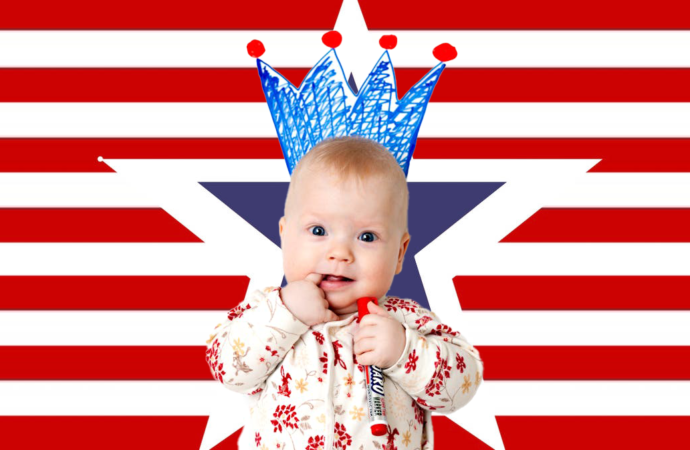After the debate, it seems there is no denying that Joe Biden has experienced significant decline over the last four years. There’s no need to devolve into diagnostics or gossip, but the fact of the matter is that Biden clearly isn’t as sharp as he was when he took office in 2020.
This has left many people perplexed about how this could have happened. The United States is the most powerful government in world history, and it’s dominated by just two political parties. How could it be that the best representative of one of the parties is unable to debate coherently for 90 minutes?
Some basic economic logic can help us figure out this puzzle.
Politics and Incompetence
The first step to solving this puzzle is to unmask some of our underlying assumptions. Oftentimes, when people think of “government,” they think of it as though it were a monolithic entity with a goal.
If government is a monolithic entity with some goal in mind, like making America prosperous, then it would make sense to expect political parties to compete by sending their best candidates to achieve that goal.
But that isn’t the nature of government. In reality, government isn’t a monolithic entity; it’s a collection of individuals who have conflicting goals, limited knowledge, and disparate incentives.
The political system doesn’t select for “the best and brightest”; it selects for those candidates who are best able to get along in the political system. Incumbents and the elderly sometimes have an advantage in such a system. Let’s think of a few reasons why.
Established Relationships
Older candidates are more likely to have established relationships with people in important institutions.
Let’s compare 2020 Democratic primary candidates Joe Biden and Pete Buttigieg. Which candidate do you think had more connections in the Democratic National Committee (DNC)? Almost certainly your answer is Joe Biden. So, insofar as the DNC can affect primary outcomes, do we think their rules will tend to favor candidates with more connections or fewer?
The same logic can play out with respect to institutions like legacy media. Who will a journalist be more likely to throw softballs at—someone he just met, or someone he’s known for decades?
Young candidates are also more likely to be on the fringe of their parties. Established party insiders and special interests in parties have certain preferences which shape how a party looks. If a young candidate comes in with a radically different vision for the party, it will stand in conflict with that of the interest groups.
As a result, over time we would expect mainstream candidates to beat out ideological outsiders and age as they continue to win re-election.
Bureaucracy
Bureaucrats in Washington, DC, also have an incentive to support older politicians. In a previous FEE article, I highlighted research which shows how the career federal bureaucrats tend to have pretty stable jobs and particular political biases, which causes dissenters to opt out of the bureaucracies.
This is true within bureaucracies, and we have no reason to expect that bureaucrats would select politicians any differently than they select for their own ranks.
Bureaucracies, like party interest groups, are established interest groups with preferences. The current bureaucratic landscape is, at least in part, a result of these preferences.
Who is more likely to shake up the bureaucratic landscape—an elderly statesman who has spent decades interacting with federal bureaucrats and has grown used to how it runs, or a young upstart with no preconceived notions about how to “get things done” in politics?
The administrative state likely isn’t much bothered about whether a politician is feeble. Is it a problem for the intelligence agencies if Joe Biden doesn’t understand what they tell him in a briefing? If he defers to their expertise, it doesn’t matter.
If it’s true that Joe Biden has as much trouble behind closed doors as he did at the debate, why does it seem like people are more concerned about his electability than his ability to be the chief executive? Perhaps, as many Americans realize, the administrative system would keep moving regardless of which legacy politician occupies the office. This sort of thing should really bother people concerned about the health of our democracy.
How the Political System Really Works
It should be noted that the logic above isn’t an iron law. Sometimes relatively old politicians are more fringe with respect to their party establishments (e.g., Bernie Sanders and Donald Trump). Other times, relatively young politicians who promise radical change can quickly become the face of the establishment (e.g., Barack Obama).
However, these tendencies can help us understand how it’s possible for political parties to support candidates beyond when it makes sense for them to run. Biden’s connections, assent to the status quo, and predictable policy decisions—all of which loosely relate to his age—are advantages to his candidacy.
If politics were about choosing the best person to establish the goals of a monolithic government, it certainly seems like we aren’t sending our best and brightest. However, politics isn’t about this, so it shouldn’t surprise us if, at least on some margins, the worst get on top.
—
This article appeared first on FEE.org under a Creative Commons (CC BY 4.0) license.
1 comment















1 Comment
Swissarge
July 26, 2024, 9:59 am“Politicians, old buildings, and prostitutes become respectable with age.”
— Mark Twain
REPLY